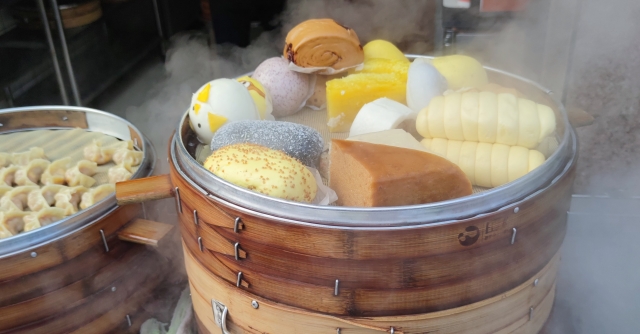We Love Market Research
Update: 2024.11.26
Allied-Verse offers business matching services,
as to help a stronger business connection between Singapore and Japan.
We support a variety of industries, and the forms varies.
Currently, we are working on Business Matching, where Singaporean and Japanese companies to “match” in their business objectives.
The basic consulting services we provide are as follows.
(1) Consult the company’s current situation and future goals, etc.
(2) Research on the target market
(3) Analyze competitive situation
We enjoy finding out new products, learning the companies visions/goals, and doing market research.
Discovering things that we did not know or had not paid attention to in our normal lives is so much fun!
Here is a summary of a market research on an industry.
[Product Name]

Why is Chinese Paozi (包子) called “Chinese Man(中華まん)” in Japanese?
What Japanese call “Chinese Man” is a product similar to Chinese Paozi (包子).
So, where the “Man” part came from?
It turns out that it came from “Mantou(饅頭)” which stands for steamed buns.
Japanese like to shorten words, so “Chinese Mantou” became “Chinese Man”, like a hero’s name.
Chinese Man has several types of fillings,
and among these, pork one is called in two different ways.
4 prefectures in the Kansai region (Osaka, Nara, Hyogo, Wakayama) call them “Pork(豚)Man”,
while the rest of Japan call them “Meat(肉)Man.”
[¥60 Billion Market]
The market size of Chinese buns grew 62.6 billion yen in 2019, but lowered to 60 billion in 2020, due to the start of corona pandemic.
70% of the total sales is from Convenience stores.
Many Japanese may remember the moment of stopping by a convenience store in the cold winter day, being hungry and involuntarily reaching out for the hot, steamy, and fluffy products displayed right next to the cash register.
Three major convenience store operators compete by offering unique products or partnering with well-known food manufacturers.
The remaining 30% is also doing great.
– Supply cannot keep up with demand! Handmade steamed buns at ¥448/bun.
– Invested 10 billion yen in a steamed bun manufacturing plant!
– Three-month wait for admission to the steamed bun museum!
– Steamed bun shop in a major train station always has a long cue!
[Weather and Pandemic]
These are the factors that have contributed to the increase in sales of Chinese steamed buns.
In cold years, sales goes high, and in warm years low,
The Corona pandemic caused the increase in the remote workers’ population and eventually increased the Chinese bun popularity.
Compared to other frozen foods such as pizza, noodles, and fried rice, they take less time to prepare and clean up.
In addition, they can be a substitute for a meal.
Although eaten with one hand and are less messy, still provide protein and carbohydrates.
[Top 3 Popular Items]
No. 1: Meat (Pork)
No. 2: Pizza
No. 3: An (Red bean paste)
Just a brief introduction to the Chinese Mantou market situation in Japan.
A Singaporean company we support has the goal of selling “sweet-type” in Japan.
While Japanese market for sweet Chinese steamed buns has been less popular,
we will provide business matching support to surprise and satisfy Japanese with their items!
Tasting samples is another fun part of our consulting work for food industry!
